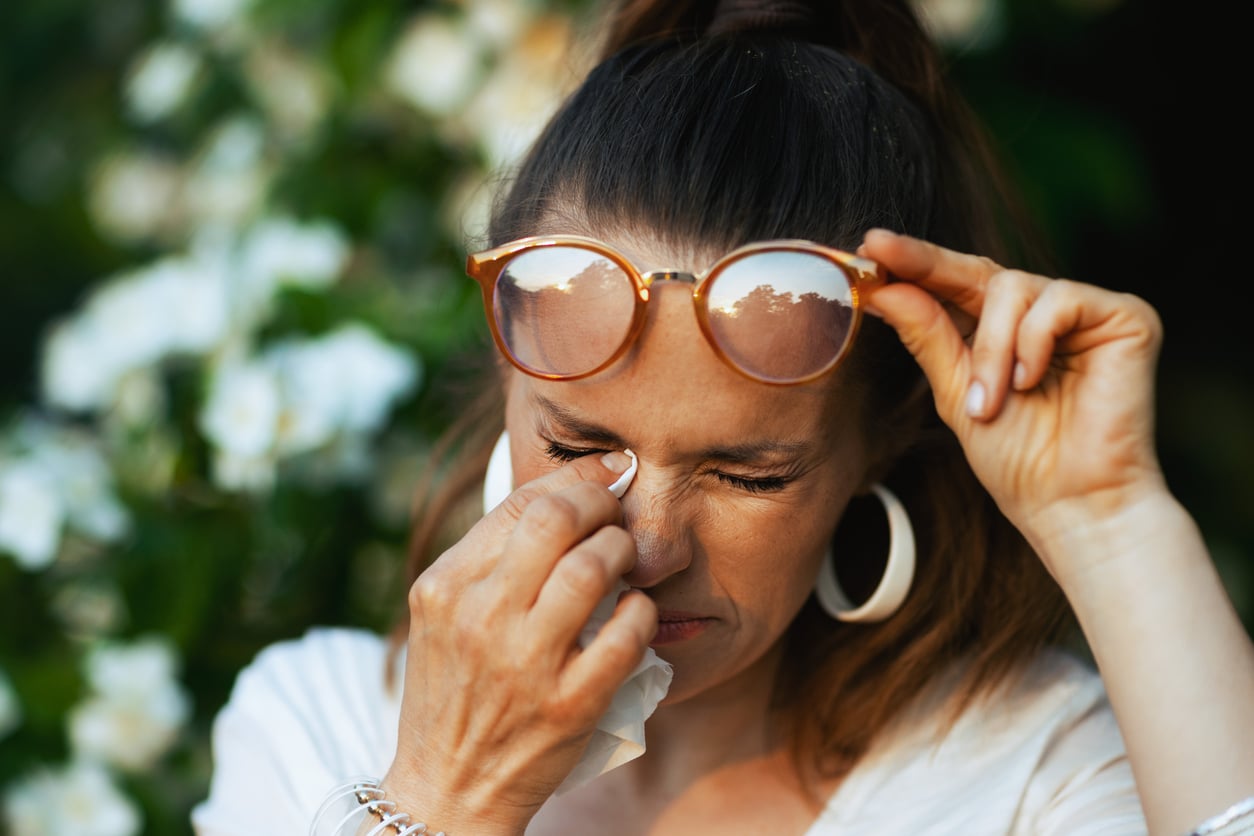Sniffling, a stuffy and runny nose, frequent sneezing and coughing are common symptoms of both a cold and an allergic reaction. This overlap can make it challenging to determine the root cause of your discomfort. Let’s explore the differences between allergies and the common cold and how you can distinguish between the two.
What Are Allergies?

Allergies are the sixth-leading cause of long-term illness in the United States. When your body encounters an ordinarily harmless substance (pollen, mold, pet dander etc.) it identifies as threatening, it releases histamine. Histamine causes the symptoms associated with allergies, including but not limited to:
- Trouble breathing
- Itching
- Hives or rash
- Sneezing
- Red or watery eyes
- Headache
- Runny or stuffy nose
Allergies vary from person to person. They may have different triggers, severity and symptom responses. In most cases, symptoms can be managed with medication, immunotherapy or allergen avoidance.
Colds
The common cold is your body’s way of responding to cold viruses. Most people will have at least one cold in their lifetime. Adults may catch two to three colds a year, while children may catch four or more. Cold symptoms generally include:
- Cough
- Headache
- Sore throat
- Runny nose or stuffy nose
- Sneezing
- Fever
There is no known cure for the common cold, but you can minimize your chances of infection with a few prevention methods:
- Wash your hands regularly
- Clean surfaces in your home and office frequently
- Avoid touching your face
- Eat a healthy diet and exercise regularly
These prevention methods are especially important around cold and flu season, typically in the fall and winter, with peak times in December and February.
How Do You Tell the Difference?
There are three key ways to tell the difference between allergies and a cold:
- Duration. Colds will normally go away on their own within seven to 10 days, whereas allergy symptoms may arise intermittently in response to allergens.
- Timing. While you can develop a cold at any time, they are most common in the fall and winter. Allergies will pop up in response to the allergens you’re sensitive to. For example, if your allergies are seasonal, they’re more likely to pop up in the summer.
- Trigger. While it isn’t always possible to tell where you got a cold, especially during cold season, allergies are a little easier to pinpoint. An allergy specialist can help identify the specific allergens causing your reactions. For example, if you’re allergic to pollen, strolling through Glenlake Park on a summer day will likely cause symptoms.
Living with a stuffy nose and constant sneezing is frustrating. For help diagnosing and managing the cause of your symptoms, contact ENT of Georgia North today for an appointment with one of our specialists.